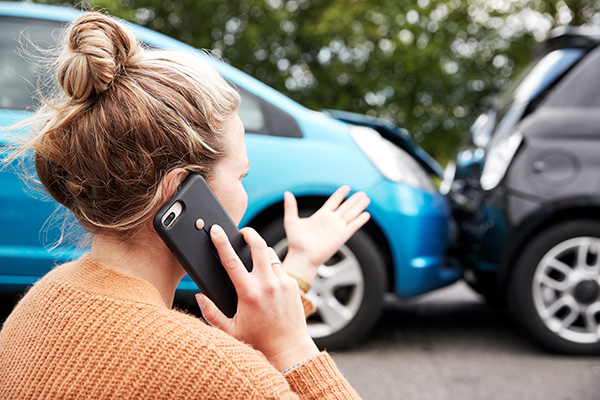
Accidents happen, and being involved in a car collision can be a frightening and disorienting experience. Knowing what steps to take immediately after a collision can help you stay calm, ensure everyone's safety, and protect your rights. Whether it's a minor fender-bender or a more serious accident, having a clear plan can make all the difference. Let's break down the essential steps you should follow if you find yourself in this unfortunate situation.
Ensure Safety First
The first and most crucial step after a collision is to ensure the safety of everyone involved. If the accident is minor and the vehicles are drivable, move them to a safe location, such as the shoulder of the road or a nearby parking lot. Turn on your hazard lights to alert other drivers. Check yourself and your passengers for any injuries, and call emergency services if anyone needs medical attention.
Check for Injuries
Assess the condition of all passengers. Even if injuries seem minor, calling for medical help is critical. Sometimes, symptoms of serious injuries might not be immediately apparent. It's better to err on the side of caution and get checked by a professional.
Secure the Scene
Set up flares or warning triangles if you have them, especially if the accident occurred in a high-traffic area. This will help prevent further accidents and keep everyone safe.
Contact the Authorities
Regardless of the accident's severity, it's important to contact the police. A police report will be invaluable for insurance claims and legal purposes. When the officers arrive, provide them with accurate information but avoid speculating or admitting fault. Stick to the facts as you know them.
A police report documents the details of the accident and includes witness statements, which can be crucial if there are disputes about what happened. This report can also help expedite your insurance claim process.
Exchange Information
After ensuring everyone's safety and contacting the authorities, the next step is to exchange information with the other driver. This includes names, addresses, phone numbers, insurance details, and vehicle registration numbers. It's also helpful to take pictures of the other driver's license and insurance card, as well as photos of the accident scene, vehicle damage, and any visible injuries.
What Information to Gather
Driver's Name and Contact Information: Essential for follow-up and insurance purposes.
Insurance Details: Company name, policy number, and contact information.
Vehicle Information: Make, model, color, and license plate number.
Accident Details: Photos of the scene, damage to vehicles, and any relevant road conditions or signage.
Document the Scene
While waiting for the police to arrive, use your smartphone to document the scene thoroughly. Capture photos from multiple angles, showing the position of the vehicles, any damage, and the surrounding area. If there are skid marks or debris on the road, photograph those as well. These images can serve as critical evidence during the claims process.
Having a visual record of the accident can support your version of events when dealing with insurance companies or if legal action is necessary. It helps create an unbiased account of the incident that can be referred back to later.
Notify Your Insurance Company
As soon as possible, contact your insurance company to report the accident. Provide them with all the gathered information and documentation. Be honest and thorough in your report. Your insurer will guide you through the claims process and help you understand your coverage and any next steps.
Steps in Filing a Claim
- Initial Contact: Report the accident and provide basic details.
- Submit Documentation: Send in photos, the police report, and any other relevant information.
- Adjuster Review: An insurance adjuster will assess the damage and determine the payout.
- Repair Process:Follow the insurance company's guidelines for vehicle repairs.
Seek Medical Attention
Even if you feel fine, seeing a doctor after an accident is wise. Some injuries, such as whiplash or concussions, may not show symptoms immediately. A medical evaluation will document any injuries, which can be important for both health and legal reasons.
Importance of Medical Records
Medical records provide proof of injury and can support claims for damages or compensation. They ensure that you receive the necessary treatment and help substantiate your case if you need to seek legal redress.
Consult a Lawyer if Necessary
In some cases, especially if there are significant damages or injuries, consulting a lawyer can be beneficial. An attorney can help protect your rights, negotiate with insurance companies, and represent you in court if needed.
When to Seek Legal Help
- Serious Injuries: If you or a passenger are seriously injured.
- Disputes: If there's a dispute over fault or insurance coverage.
- Compensation Issues: If you're struggling to get fair compensation from the insurance company.
Need immediate assistance after a car accident? Contact Fuller Automotive for expert help, advice, and repair.